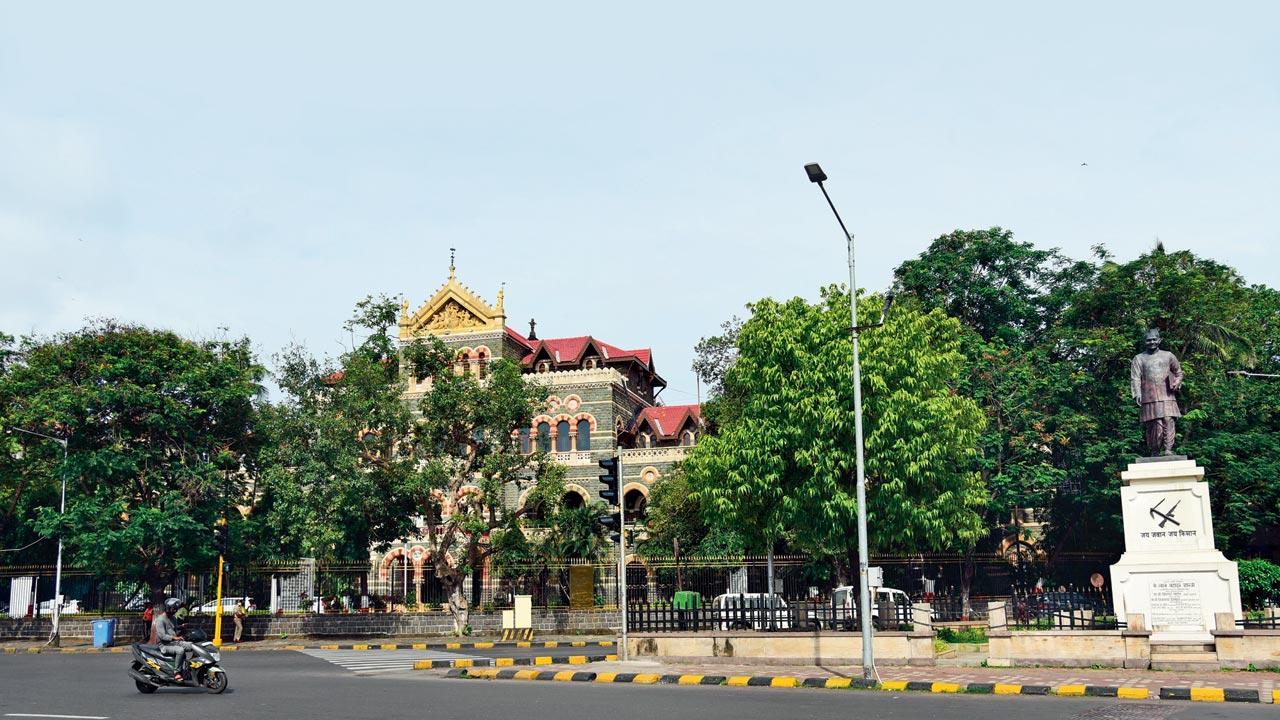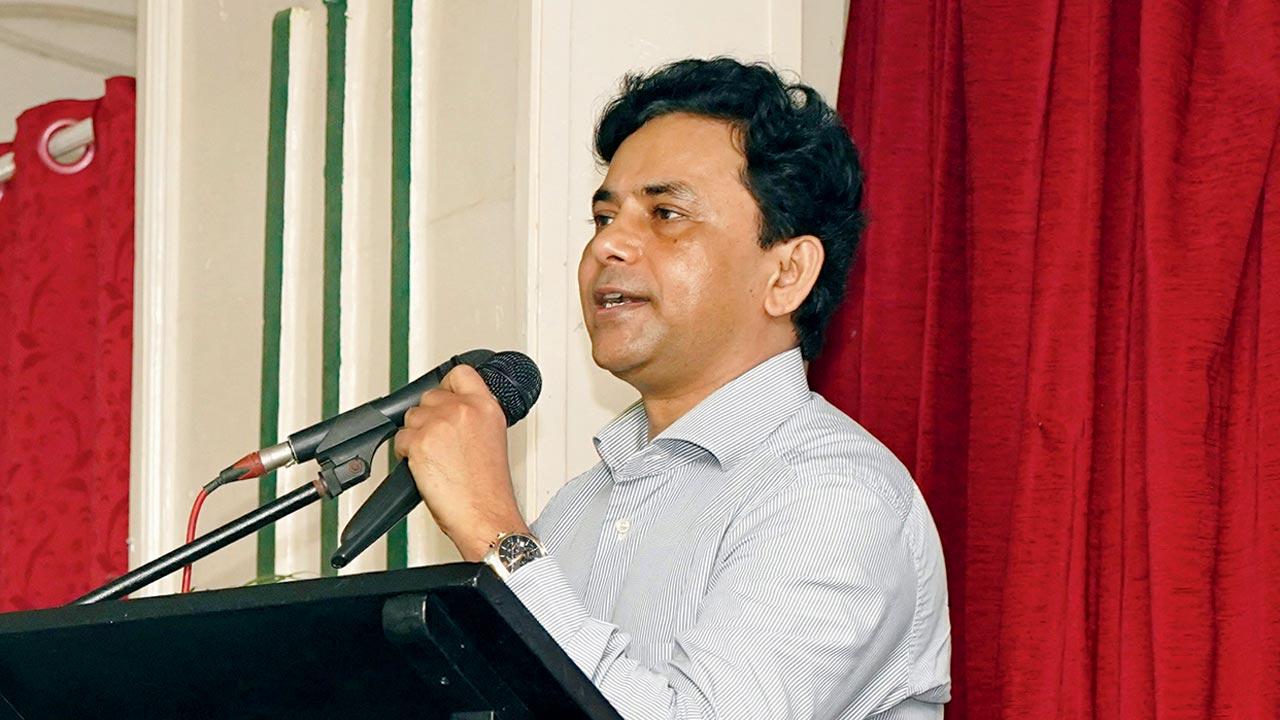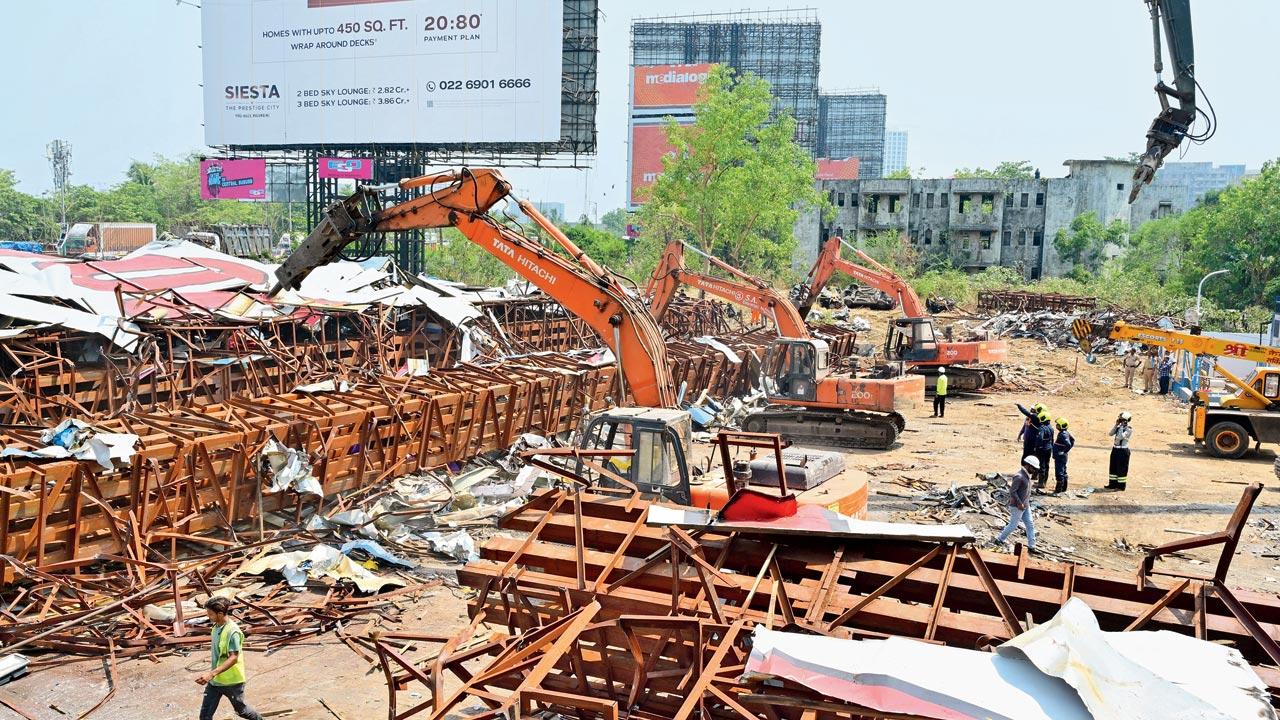Despite this, then GRP Commissioner Khalid signed off on the papers on December 18, 2022, two days after his transfer order were issued, probe finds

The Maharashtra Police headquarters, which houses the director general of police’s office, at Fort. File pic
The special investigation team (SIT) of the Mumbai Crime Branch, which is probing the Ghatkopar hoarding collapse case, has found that the director general of police’s office, in January 2021, had denied permission for the erection of the billboard that claimed 17 lives last month. However, former Government Railway Police (GRP) Commissioner Quaiser Khalid gave his nod for the same on his last day in office in 2022.
ADVERTISEMENT
Shortly after this, the DGP’s office initiated a departmental probe into the matter.
 Former Government Railway Police Commissioner Quaiser Khalid. File pic
Former Government Railway Police Commissioner Quaiser Khalid. File pic
According to sources, the DGP office refused to give permission for the Ghatkopar hoarding in January 2021 due to jurisdiction issues and legal errors after IPS Ravindra Sengaonkar, the commissioner at the time, had forwarded the files. Sengaonkar also sent three other files and followed the legal processes of issuing the tender as per the mandate of the government and local bodies. The DG office granted permission for the three hoardings but refused to give permission for the oversized Ghatkopar one, citing jurisdiction issues.
Khalid, who was appointed GRP commissioner in February 2021, went ahead and gave permission after receiving his transfer order on December 16, 2022. He allegedly signed the papers on December 18, just before handing over charge to his successor, Dr Ravindra Shisve, who is now the current commissioner of railways.
 The remains of the gigantic billboard that fell on a petrol pump in Ghatkopar, on May 15. Pic/Shadab Khan
The remains of the gigantic billboard that fell on a petrol pump in Ghatkopar, on May 15. Pic/Shadab Khan
Sources in the Crime Branch have revealed that the DGP office was unaware that Khalid had granted permission for the illegal hoarding without seeking their approval. “We discovered this when the new CP [Shisve] submitted the file to regularise the hoarding approved by Khalid. The DGP office once again refused and initiated an inquiry into how the permission was granted despite their refusal in 2021 and how the fresh approval was given without seeking their permission,” an officer said.
The DGP office has asked Khalid to send his response, but the source said they were unaware if he had responded after the collapse or if his response is still awaited. “While we were probing the matter, the hoarding suddenly collapsed on May 13 due to harsh weather. A criminal offence has already been registered. The Mumbai Crime Branch is investigating the matter to establish everyone’s accountability,” said an officer.
Probe nearing completion
Sources have also said that the DG office is going to complete its internal probe and, if necessary, will send its report to the SIT to determine if a criminal offence needs to be registered against the officer concerned. “The criminal part is being probed by the SIT. As far as the officer’s role is concerned, it’s mainly departmental. However, if he was aware that the strength of the pillar was weak and he on paper increased the size from 40x40 to 120x140, then his role is considered a criminal and he may be booked for the same because as per the mandate of the BMC hoarding size cannot exceed more than 40x40.” the officer added.
The SIT, which has already intensified its probe, has recorded the statement of Shahji Nikam, admin ACP, GRP.
Sources reveal that Nikam indeed made remarks about jurisdiction issues, clarifying that the land belongs to the state government and does not fall under the Railways. Additionally, he briefed Khalid about the refusal order of the DGP office back in 2021. However, since the files were approved by Khalid, Nikam also signed the papers as he was following the orders of his superiors, but he did include remarks on them. “These remarks clarify the role of the ACP and create more trouble for the former GRP commissioner,” a senior officer of the Maharashtra Police said.
Khalid didn’t respond to the calls and messages sent by mid-day by press time.
2021
Year DGP’s office first denied permission
2023
Year DGP’s office learnt of illegality
 Subscribe today by clicking the link and stay updated with the latest news!" Click here!
Subscribe today by clicking the link and stay updated with the latest news!" Click here!







